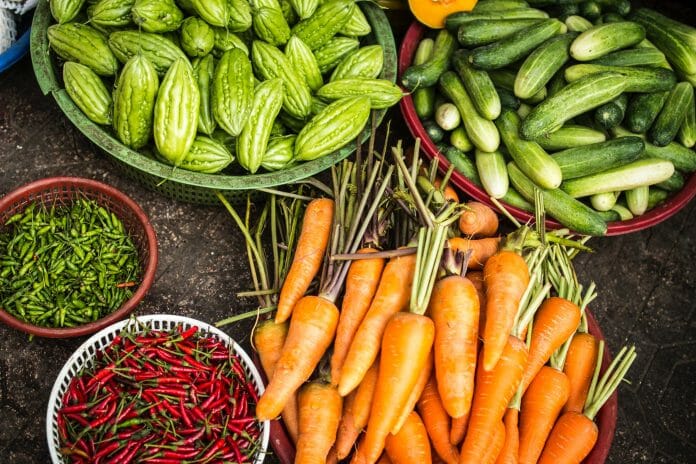In Budget 2024, Malaysia has laid out a vision that resonates profoundly in a world marked by unpredictable global food supply chain disruptions. These disruptions have posed a significant challenge to ensuring the availability and affordability of basic goods in local markets.
Notably, Malaysia recently faced severe disruptions in the availability of key staples, which serve as compelling examples of the challenges at hand. India, one of the major rice exporters, halted its rice exports globally, leading to rice shortages in Malaysia. Additionally, Malaysians grappled with shortages of chicken and eggs in recent months. These incidents underscore the pressing need for a robust food security strategy in the country,
Amid global food supply chain disruptions, in Budget 2024, the government has taken a significant step by lifting price controls on chicken and eggs. This decision acknowledges the need for local markets to function freely, allowing for better adaptability during disruption. By doing so, Malaysia encourages a more dynamic response to supply fluctuations, allowing market forces to govern prices according to demand and supply.
However, this strategy has raised concerns about the immediate impact of this move on consumers. While the strategy aims to improve supply chain flexibility, it may lead to an increase in food prices, particularly for chicken and eggs. Many Malaysians are already feeling the pinch as their purchasing power erodes in the face of rising costs. This approach may disproportionately affect low and middle-income families, making essential protein sources less affordable. Striking the right balance between promoting a resilient supply chain and ensuring affordable access to essential goods is currently a subject of debate.
Similarly, the government’s substantial allocation of RM2.6 billion in subsidies and incentives for paddy farmers and fishermen are allocated to empower these communities and enhance self-sufficiency in the face of global disruptions. However, there are concerns about the long-term sustainability and efficiency of this approach.
Relying too heavily on subsidies could foster dependency among farmers and fishermen, potentially hindering innovation, and productivity in the future. While this financial aid provides vital support, it may not represent the most effective solution for ensuring a consistent supply of essential food commodities in local markets, especially considering the rapidly changing global landscape.
Furthermore, to address the impact of global food supply chain disruptions on food price inflation, the government’s allocation of RM400 million to implement the Food Security Strengthening program is a critical initiative. This program is designed to shield consumers from price shocks caused by disruptions by strengthening the resilience of the local food supply chain. However, this strategy may address immediate price concerns but may not comprehensively tackle the broader aspects of food security.
The Possible Way Forwards
A more forward-thinking strategy could involve encouraging farmers and fishermen to embrace modern agricultural practices and cutting-edge technology, thereby boosting the productivity and resilience of their agricultural output and reduce dependency on subsidies.
Achieving a balance between providing support and promoting innovation within the agricultural sector is crucial for long-term sustainability and efficiency in addressing food security in Malaysia. Besides that, Malaysia’s budget actively encourages consumers to make sustainable food choices and reduces the demand for expensive or scarce products.
In fact, the Malaysian government should look forward to developing a comprehensive, long-term food security strategy that balances the need for immediate relief with a focus on sustainability and resilience. These measures would help Malaysia address its food security challenges by providing a more robust and sustainable framework for ensuring the availability and affordability of essential food items in the face of global disruptions.
Shaping Malaysia’s Food Future Together
As we reflect on the challenges and opportunities presented by Malaysia’s pursuit of food security in Budget 2024, it’s crucial to remember that this isn’t a task solely entrusted to policymakers and experts. In fact, each one of us plays a part in this narrative, and our collective actions can make a significant difference in ensuring a stable and prosperous food future for our nation.
So, what can you do? It starts with awareness. Understanding the complexities of the food system, from farm to table, empowers you to make informed choices as a consumer. Consider the impact of your food preferences and consumption habits. By making sustainable and responsible food choices, you can directly contribute to price stability and the resilience of our food supply.
Moreover, consider the significance of supporting local farmers and fishermen in their adoption of modern practices and technology. This not only empowers these communities but also strengthens our food supply chain.
Together, we can shape Malaysia’s food future—a future where the availability and affordability of essential goods are assured, regardless of global disruptions. Our commitment to responsible food choices and an understanding of the food system’s intricacies will not only secure our own well-being but also strengthen the resilience of our entire nation. It’s a future that we can create together, and it begins with each of us taking a step towards a more food-secure Malaysia.
Dr Salini Devi Rajendran is a Senior Lecturer at the School of Food Studies and Gastronomy, Faculty of Social Sciences and Leisure Management, Taylor’s University









